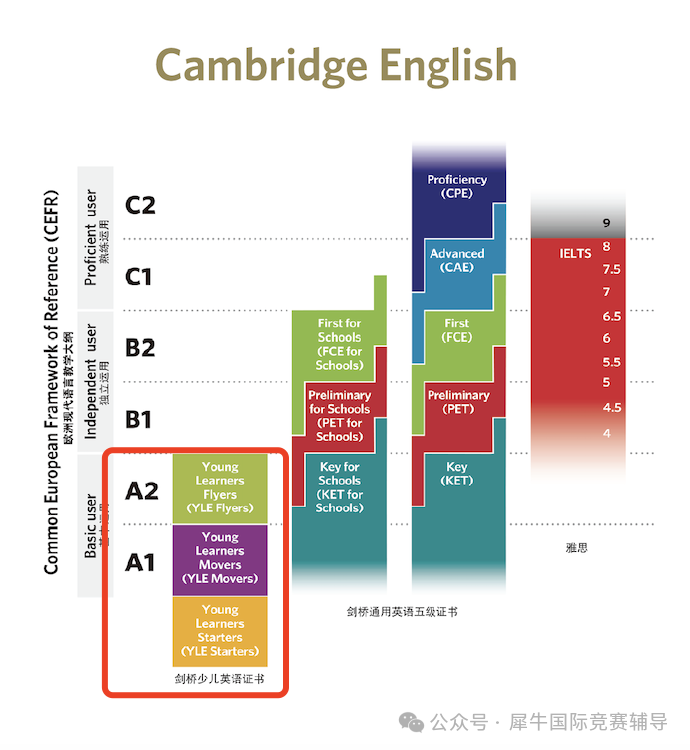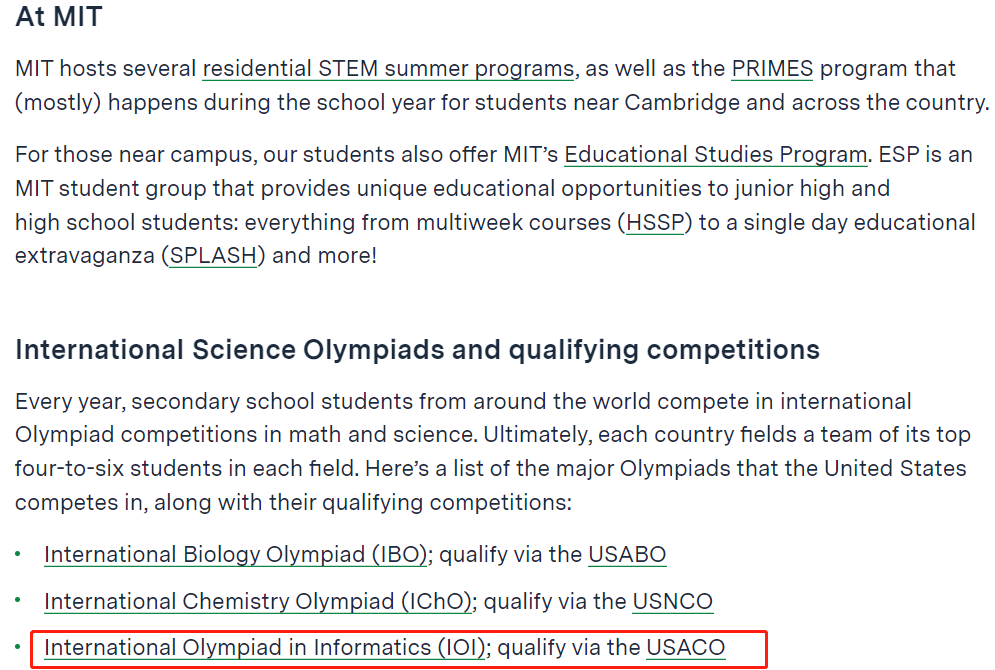为捍卫诗歌作为一门重要的学术学科而作
IN DEFENSE OF POETRY AS A VITAL ACADEMIC DISCIPLINE
作者简介:Eric L拥有创意写作和英语文学博士学位,在美国担任大学英语系教授近20年,同时担任多家著名网站专栏作家,著有自传体散文集《THE WINTERS OF MY SUMMER AFTERNOONS》,目前,在机构课程担任AP英文文学与写作项目老师。
(中文译本, 由机构中英翻译组Wendy W博士翻译)
BY Eric Le Roy
Many people who should know better – and deep down probably do know better – automatically relegate poetry to a lower tier on their children’s academic ‘to-do’ list. They often mistakenly imagine poetry to be a ‘soft’ art, full of sentimental cliches and written largely by distracted women and ineffectual guys. And yet these very same people, when looking for the perfect way to punctuate a commencement address or political speech, will often resort to a great line of poetry to punctuate their point and inspire the audience, lifting its perception to a higher level.
许多人总是无意识地将诗歌降到了孩子学业“待办事项”清单上的较低位置,虽然他们应该对诗歌有更好的了解,或者其实他们内心对诗歌了解挺多。他们常常错误地认为诗歌是一种“软”艺术,是充满感伤的陈词滥调,大部分是由心烦意乱的女人和无能的男人写的。然而,当这些人要寻找完美的方式来升华他们的毕业典礼演讲或政治演讲时,往往会诉诸伟大的诗行来强调他们的观点和激励观众,以将演讲提升到更高的水平。
Why do they do this, and why does it work? The reason is that ‘poetic’ insight or epiphany offers deeper understanding, usually expressed in surpassing language, that mundane cliches and common collocations cannot approach. In poetry, therefore, lies truth – something at once more elusive and yet more obvious than all the banal corporate or academic expressions put together. Likewise, poetry need not be language specific: the hypnotic effect of music, sculpture, and dance elicit the poetic response in people. Therefore, if we have some hidden, buried mechanism inside us that drives us to do extreme sports for the so-called adrenalin rush, then it is just as true that there is a force within us that at times yearns to express the inexpressible.
他们为什么要这样做,为什么这么做是有效的?因为“诗意”的洞察力或顿悟为人们提供了更深刻的理解,通常能以更高超的语言形式表达出来,这是世俗的陈词滥调和常见的组合搭配无法达到的。因此,诗歌中蕴藏着真理——它比所有平庸的企业或学术表达加在一起更难以捉摸,但也更明显。同样,诗歌不必限定于语言:音乐、雕塑和舞蹈的令人着迷的魅力都会引起人们的诗意反应。因此,如果我们体内有某种隐藏的、被埋藏的机制驱使我们去进行极限运动,也就是所谓的肾上腺素激增,那么我们体内也确实有一种力量,有时特别渴望表达无法表达的事物。
Enter poetry in all its forms. Ask yourself: why do we dance? Why do we sing? Why are we sometimes wildly happy or sad for no apparent reason– except that we just are? Moreover, those who would squelch or force a lid over these bubbling emotions are the same who would deny birds their song and cockerels their cock-a-d-doodle do !!
看看各种形式的诗歌;问问自己:我们为什么跳舞?我们为什么唱歌?我们为什么有时会无缘无故地极度高兴或悲伤?但是我们就是这样的!另外,那些压制或强行掩盖这些沸腾情绪的人,与那些拒绝承认鸟儿歌唱、公鸡鸣叫的人是一样的!
There is more to life than the ‘correct’ answer or a perfect score of correct answers. Children and old people know this, but they are not taken seriously by the passionate herd of ‘achievers’ who are impatient for the next ‘result’. But there is more, and it may take a lifetime to figure this out. The trick is that you must, if not go looking for it, at least be receptive to it. Grasping poetry teaches us to peer deeply into the nature of things, to search beyond the surface, to probe toward the germination in the heart of the seed, and open up our figurative eardrums, eyeballs, tastebuds, and nostrils to hear, see, taste and smell what was there all along!! It was there, but we hadn’t noticed. Artists and scientists win the Nobel Prize based on things that they gradually… and then suddenly…noticed!! This is the moment of discovery. And self-discovery. Surely, developing these skills in lateral thinking and intensified perception can benefit students at all levels.
生活不仅仅是“正确”答案或因为正确答案得到的满分。孩子和老人都知道这一点,但他们并没有被一群热情地期待下一个“结果”的“成功者”认真对待。但生活不止于此,这一点可能需要一生才能弄清楚。诀窍在于,即使你不去寻找它,至少也要接受它。深刻领会诗歌教会我们深入观察事物的本质,超越表面,探究内心种子的萌芽,打开我们的耳膜、眼球、味蕾、鼻孔来听、看、尝,并闻闻这些一直存在的东西!它一直在那里,只是我们没有注意到。艺术家和科学家获得诺贝尔奖是基于他们逐渐……然后突然……注意到的事情!这是发现的时刻;也是自我发现。当然,发展横向思维和强化感知的技能也可以使各个级别的学生终身受益。
In this essay, I am going to choose several poems from the list of poetry essay questions from previous A.P. exams and one of my own, and break them down descriptively and analytically. This will help students who are asked to make analyses of many things: history, technology and artificial intelligence, psychology, quantum physics, business analytics, and so on, comprehend that the same skills which unlock a poem can be cultivated to unlock other things of allegedly more importance.
在这篇文章中,我将从以往AP. 考试中诗歌赏析的试题中选择几首,以及我自己的一首,并对它们进行描述性和分析性的解读。这对那些被要求分析许多其它学科的学生:历史、技术和人工智能、心理学、量子物理学、商业分析等等,都会有帮助,因为他们会懂得解锁一首诗的技能也可以用来解锁其他被认为更重要的事情。
The key is to maintain an open mind. We adults have been forced to concede that video games can help develop other vital skills. They can of course be a waste of time and health, but they also promote new realities of the ‘metaverse’. If we don’t take that seriously, well, we should. It is the ‘New Reality’. Poetry can do the same. It is timeless, and its timelessness proves that human beings have always relied on it to explain the universe, just as importantly, to explain themselves to themselves. Therefore, adults, parents: keep an open mind. I implore you.
关键是我们要保持开放的心态。比如我们成年人被迫承认电子游戏可以帮助培养其他重要技能的。它们当然可能浪费时间和健康,但它们也促进了“元宇宙”的新现实。如果我们不认真对待这一点,那么,我们现在应该认真对待。这就是“新现实”。诗歌也可以做到这一点。诗歌是永恒的,它的永恒证明了人类一直依靠它来解释宇宙,同样重要的是,也依靠它来向自己解释自己。所以,大人、家长:保持开放的心态。我恳求你。
Now for some moments of discovery in the poems themselves.
现在我们来看看诗歌本身吧。
01THE MAN, THE WOLF,AND THE LAMB——By Eric Le Roy
《人,狼和羔羊》, 作者 Eric Le Roy
Prompt: How do the man and the Wolf view the lamb – and the universe – differently?
题目:人和狼对羔羊以及宇宙的看法有何不同?
This is a poem I wrote in a collection back in 1997 for which I received a PhD. I was in the Creative Writing Program at Florida State university and was allowed to write my own original poetry for my dissertation. I used many kinds of styles, gradually reducing my earlier expansive, ‘flowery’ style to something more compact, precise, and disciplined.
这是我 1997 年写的的诗集中的一首诗,并因此获得了博士学位。我毕业于佛罗里达州立大学的创意写作专业,我被允许写自己的原创诗歌作为我的论文。我使用了多种风格,并逐渐将我早期的扩张性、“华丽”风格减少到更紧凑、精确和严谨的风格。
This particular poem, unlike the others, came to my mind as sort of a parable, the very nature of which genre seems designed to puzzle (and often exasperate) readers. But hopefully, the ‘meaning’ here is clear enough, and I decided to include it along with the work two more famous poets simply in order to show how a poem is conceived and constructed. For me, the amazing thing is how many components there are, and how many disparate yet somehow interconnected impulses, can lurk in a single poem.
这首诗与其他诗不同,作为一个寓言来到我的脑海里,这种体裁的本质似乎是为了让读者感到困惑(并且常常激怒他们)。但希望我在这里表达的“含义” 足够清楚,在这里我决定将其与两位更著名诗人的作品一起进行分析,只是为了展示一首诗是如何构思和构造的。对我来说,令人惊奇的是一首诗中可以潜藏着如此之多的成分,以及看似无关但又以某种方式相互关联的冲击力。
First, I come from a Christian culture (the United States) but I have never called myself a Christian. On the other hand, I am not so ‘spiritually’ drained of blood as to call myself a hardcore atheist either. I am of the persuasion that, as a good friend once told me, “Religion is for people who are afraid of going to Hell; Spirituality is for people who have been there.” I sincerely believe that most artists fit the latter category.
首先,我来自基督教文化(美国),但我从未称自己为基督徒。另一方面,我也没有在“精神上”耗尽元气,以至于称自己为铁杆无神论者。我相信,正如一位好朋友曾经告诉我的那样,“宗教是为那些害怕下地狱的人而存在的;而灵性是为那些去过那里的人准备的。”我真诚地相信大多数艺术家都属于后一类。
Therefore, the voice in the poem is that of a man (whom you might as well go on and think of as me) who, despite some reaching and thrashing about, has simply failed to find God. He asks, contemplates, prays, and shouts, but the ‘sky’ yields nothing. It is impassive. For the man, this failure amounts to a deeply personal defeat, and he doesn’t know who needs forgiving most for this failure: himself or ‘God’. The skies won’t say, as they never have and presumably never will.
因此,这首诗中的声音属于一个人(你不妨继续想象他就是我),尽管他进行了一些努力和挣扎,但还是未能找到上帝。他祈求、沉思、祈祷、呼喊,但“天空”却空空如也。它是冷漠的。对于这个人来说,这种失败相当于深深的自我挫败,他不知道谁最需要原谅这种失败:他自己还是“上帝”。天空不会告诉他,因为它们从来没有说过,而且大概永远不会。
Then along comes a lamb (plenty of religious symbolism there, right?) followed by a wolf. The wolf is there to do a wolf’s business, which is to slaughter and devour the lamb. No hesitation, questions asked, or remorse. The man, while recoiling from the sudden violence of which part of nature is constituted, nevertheless cannot help but be impressed. He wishes he could be as steadfast in his mind and as guilt-free in his moral code of action vs non-action as the wolf – who of course is not troubled by a ‘moral code’ at all.
然后出现了一只羔羊(那里有很多宗教象征意义,对吧?),后面跟着一只狼。狼在那里做狼该做的事,那就是屠杀和吃掉羔羊。没有犹豫,没有疑问,也没有悔恨。那个人,虽然对自然界的这种突如其来的,但也一直存在的暴力感到畏惧,但还是忍不住被震撼了。他希望自己能像狼一样意志坚定,也像狼一样能在行动与不行动的道德准则上毫无负罪感——当然,狼根本不会受到“道德准则”的困扰。
Even so, the man says ‘grace’ – which means he thanks ‘God’ for the food he is about the eat. The wolf sits patiently yet slavering, ready to devour the tasty carcass.
What happens next is what the poem is really about, and this concerns the single-minded instincts of Nature where bird, beast and fish simply know what to do without the encumbrance of guilt and remorse, – and the human being, whose whole existence is bound up in a self-imposed dilemma of suffering based on some sort of sense of failure before a “God” that for all intents and purposes Simply Is Not There.
即便如此,该男子还是说“谢主恩”——这意味着他感谢“上帝”赐予他即将要吃的食物(诗中人与狼分食了羊羔)。而狼只是耐心地坐着,流着口水,准备吞噬美味的尸体。接下来就是这首诗真正要表达的内容,这涉及到大自然的一心一意的本能,大自然中的鸟、兽和鱼只是知道该做什么,而没有内疚和悔恨的负担,而人类,其整个存在是陷入一种自我强加的痛苦困境,这种困境是基于在“上帝”面前的某种失败感,即使“上帝”根本不存在。
And yet, for all his guilt, the man is corrupted by his fantasies. The wolf continues to perform the act of killing and eating lambs because that is what he must do, and it is not done out of some premeditated cruelty or desire to inflict pain, but simply because he must do so in order to survive. Nor will he ever run out of lambs because, in the natural way of things in the wild, he is designed to treat the lamb with respect even as he rips it to shreds.
然而,尽管那个人各种忏悔,却还是被思想上的困境束缚着。而狼继续执行杀死和吃羔羊的行为,因为这是它必须做的事情,而且它这么做并不是出于某种有预谋的残忍行为或要造成痛苦的欲望,而仅仅是因为它必须这样做才能生存。它也永远不会把羔羊赶尽杀绝,因为按照野外事物的自然方式,即使它将羔羊撕成碎片,它也还是会尊重羔羊。
The man is different: he would never do something so heinous as to kill a helpless lamb, and yet the thought of it, the desire and the guilt, combine to create a bloodthirsty world of dark fantasies. The wolf therefore is essentially innocent, whereas the man, driven by his own frustration and dark imaginings, actually turns his own mind into a kind of torture chamber: “The guilty man/had never killed a lamb/but in his mind killed more.”
人则不同:他永远不会做出杀死一只无助的羔羊这样令人发指的事情,然而想到这一点,欲望和罪恶感结合在一起,创造了一个充满黑暗怪念头的嗜血世界。因此,狼本质上是无辜的,而人则在自己的挫败感和黑暗想象的驱使下,实际上将自己的思想变成了一种酷刑室:“有罪的人/从未杀过一只羔羊/但在他的思想中杀了更多。”
Thus, even in a godless universe, the very real and grim sensation of exotic guilt besets the man, the human engine of law, morality, and ‘God.’ The wolf, free of such self-indulgence soda-masochism, plays the role of both predator and prey, as he must eventually do also, with consummate equanimity and a fearful grace.
因此,即使在一个无神论的宇宙中,外在的非常真实而严峻的罪恶感也困扰着人类,人类法律、道德和“上帝”给了他们这些感觉。狼,没有这种自我放纵的受虐嗜好,它既是捕食者也是猎物,而且它最终也必须以完美的平静和可怕的优雅做到这一点。
02Storm Warnings—— by Adrienne Rich
风暴警告,作者 Adrienne Rich
Prompt: Write an essay in which you explain how the organization of the poem and the use of concrete details reveal both its literal and its metaphorical meanings. In your discussion, show how both of these meanings relate to the title.
题目:写一篇文章,解释这首诗如何在结构上和具体细节上揭示其字面意义和隐喻意义。并说明这两种含义与标题的关系。
‘Storm Warnings’ is a poem of four stanzas each of which contains seven lines. It is written in free verse, which means that it doesn’t follow any particular form and certainly does not rely on rhymes – which for many people is what a poem should consist of. In modern poetry this isn’t the case in the vast majority of works. In the worst of poems – though submitted in workshops and private little groups, the divorce from rhyming and its subsequent ‘prosy’ tendencies seems to encourage authors to write boring, uninspired, prosaic sentences and then chop them up into verse form, finally adding an enigmatic ‘punch line’ at the end to make it all sort ‘poetical’ i.e., the ambiguous but somehow precious last line is there to save the day. This is the equivalent of a lot of ‘modern art’ which tries to hide mediocrity and downright fraud behind a curtain of inscrutability.
《暴风雨警告》是一首四节诗,每节七行。它是用自由诗写成的,这意味着它不遵循任何特定的形式,当然也不依赖于押韵——对许多人来说,押韵就是一首诗应该包含的内容。然而在现代诗歌中,绝大多数作品并非如此。在糟糕的诗歌中——尽管这些作品是在研讨会和私人小团体中提交的,诗歌与押韵的脱离及其随后的 “散文” 倾向似乎都在鼓励作者写出无聊、缺乏灵感、平淡无奇的句子,然后将它们切割成诗歌形式,最后添加一个神秘的 “妙语” 让一切都变得 “诗意” ,也就是说模棱两可但莫名其妙珍贵的最后一行是全文的救星。这相当于许多 “现代艺术” 试图将平庸和彻头彻尾的欺诈隐藏在神秘的帷幕后面。
Rich’s poem and, fortunately, many others using the same form, is far from fake or lacking in the intensity of language and insight which constitute real poetry. The language is tight and precise, and even seemingly casual lines such as the opening “The glass has been falling all afternoon” (here ‘glass’ meaning the barometer or thermometer) sets up the entire point of the poem, which is that the instrument recording the change in weather, like the clocks and weather glasses that occur later on in the poem can only monitor and record what is happening; they cannot actually affect it in any way. Thus, the impending storm portends the arrival of a power far beyond anything that the speaker can even comprehend, much less control. Indeed, the winds are ‘walking’ overhead, a conceit or personification that lends godlike force to the wind, compared to which the speaker is left only with a “pillowed chair” from which she can wander from “window to closed window” as she seeks to shut out the force of nature. At this point, at the end of the first stanza we feel the separation of the powerless when confronted with the all-powerful. Illusions of safety and protection are only that: inventions of the fancy that, like all civilizations, can crumble or simply be blown away, but the gales of the universe face no such limits.
幸运的是,Rich的诗以及许多其他使用相同形式的诗,绝非虚假,也不缺乏真正诗歌的语言力度和洞察力。语言紧凑而精确,甚至看似随意的诗句,如开头“玻璃整个下午都在掉落”(这里“玻璃”指的是气压计或温度计),也奠定了这首诗的整个要点,即仪器记录天气的变化,它们就像诗中后来出现的钟表和气象仪器一样,只能监视和记录正在发生的事情;它们实际上不能以任何方式影响它。因此,即将到来的风暴预示着一种力量的到来,这种力量远远超出了叙述者所能理解的范围,更不用说控制了。事实上,风在头顶上“行走”,这是一种赋予风神圣力量的想象和拟人,相比之下,叙述者只剩下一把“带枕头的椅子”,她离开椅子上从“一扇窗户走到另一扇关闭的窗户”,试图排除自然的力量。至此,在第一节的结尾,我们感受到了当面对全能者时,无能为力的人的崩溃。对安全和保护的幻想只是这样:像所有文明一样,幻想可能会被摧毁或被风吹走,但宇宙的狂风不会面临这样的限制。
Then, in the second stanza, as if some tremendous force had blown down the walls that separate the human from the elements, the poet states: ”Weather abroad/ and weather in the heart alike come on/ regardless of prediction.” And she goes on to say:
然后,在第二节中,仿佛有某种巨大的力量吹倒了将人类与自然分开的墙壁,诗人说道:“外面的天气/和心中的天气一样到来/无论预测如何。”她接着说:
Time in the hand is not control of time,
Nor shattered fragments of an instrument
A proof against the wind: the wind will rise.
We can only close the shutters.
手里的时间不能掌控时间,
就像破碎的乐器碎片(不能演奏乐器)
逆风的证明:风会起。
我们只能关上百叶窗。
The point, expanded to a larger scale, is that for all our little rituals and elaborate defenses, mortal time and definition cannot compete with the natural forces beyond it, and the last stroking images in the final stanza, the lighting of a candle (an ancient way of producing fire and warmth) and the tiny keyhole which locks out the wind but not the insistent whine of its presence – these symbolically are among our defenses against death. But death and all its riddles or all its nothingness – whatever there is – is inexorable, and there is nothing we can do but wait and accept it when it comes: “These are the things we have learned to do/Who live in troubled regions.
扩大到更大的范围,这一点是说,尽管我们有宗教仪式和精心设计的防御,凡人的时间和定义无法与超越它的自然力量竞争。最后一段中的描写的情景,蜡烛的点燃(产生火和温暖的古老方式)和小钥匙孔(它可以挡住风,但不能挡住风的持续哀鸣)——这些象征性是我们抵御死亡的防御措施之一。但死亡及预期相关的所有谜团或所有虚无——无论是什么——都是无情的,我们无能为力,只能等待并在它到来时接受它: “这些是我们已经学会做的事情/生活在动乱地区的人”.
Furthermore, if a student wished to apply the wisdom of this poem to present times, he/she might think of the environment and challenges to the ecology which pollution, toxic CO2 and the ‘greenhouse effect’ have made for us. “Save the Planet!” the idealists cry, and who can blame them. But in Rich’s poem a deeper truth lies. The planet is not going anywhere. We are. The planet will be fine long after the homo sapiens is gone, because the planet – and the cosmos surrounding it – are made from forces that clocks and smartphones and all other manipulative gadgets can only click and squeak against, ultimately controlling nothing.
此外,如果学生希望将这首诗的智慧运用到当今时代,他/她可能会想到污染、有毒二氧化碳和“温室效应”给我们带来的环境和生态挑战。“拯救地球!” 理想主义者在哭泣,谁能责怪他们呢。但Rich的诗中蕴藏着更深层次的真相。这个星球不会去往任何地方,我们会。在人类消失后很长一段时间内,这个星球都会很好,因为这个星球以及它周围的宇宙是由强大的力量组成的,对于这样的强大的力量,时钟、智能手机和所有其他装置只能吱吱作响,根本无法控制。
Finally, how might a student analyze the structure and technique of this poem if called upon to do so as part of an assignment. To this I suggest the following excerpt from a student named Mara Brian: “The poet uses many different literary devices throughout. For instance, imagery is used constantly describing things the author sees and hears as the storm approaches. Each stanza contains one rhyme or half rhyme(afternoon/zone, abroad/come on, time/rise, season/regions.) Also, the poet uses the technique of alliteration in the opening of the poem, where she uses repeating ‘w’ sounds that allude to the wind and storm (“what winds are walking overhead, what zone of grey’…and…’walk from window to closed window, watching.’) The poet also makes use of both metaphor and personification: metaphor when she says “weather abroad and weather in the heart’ referring to human moods and ‘what the winds are walking overhead.”
最后,如果一个学生被要求分析这首诗的结构和技巧。对此,我建议摘录一位名叫玛Mara Brian的学生作品:“诗人自始至终使用了许多不同的文学修辞。例如,作者不断地使用意象(imagery)来描述风暴临近时所看到和听到的事情。每段都包含一韵或半韵(afternoon/zone, abroad/come on, time/rise, season/regions)。此外,诗人在诗的开头使用了头韵技巧,她使用重复的“w” ’的声音暗示着风和风暴((“what winds are walking overhead, what zone of grey’…and…’walk from window to closed window, watching.’ )诗人还同时使用了隐喻和拟人。隐喻的一个例子是当她说“外面的天气和心中的天气”指的是“人类的情绪”和“头顶上吹过的风”“。
03At Grass—— By Philip Larkin
《在草地上》,作者 Philip Larkin
Prompt: What do the horses represent in the poem At Grass? Are they 'mere' horses or statements of something larger? What is the correspondence between the mundane (the races and their attendant 'fame’) and the primordial energy of the animals?
《草地》这首诗中的马代表什么?它们只是“马”还是其它更大事物?世俗(比赛及其随之而来的“名声”)与动物的原始能量之间的对应关系是什么?
In this poem, the scene starts with horses standing in a field:
在这首诗中,场景以马匹站在田野中开始:
The eye can hardly pick them out
From the cold shade they shelter in,
Till wind distresses tail and mane;
Then one crops grass, and moves about
- The other seeming to look on -
And stands anonymous again
肉眼几乎无法辨别它们
他们躲在寒冷的树荫下,
直到风吹乱尾巴和鬃毛;
然后一只吃草并四处走动
- 另一个似乎在看着 -
并再次隐匿
The horses seem no different from countless others: wandering about, sniffing and snorting, cropping the grass, and for a moment one of the horses seems to be studying the other, as if some kind of ‘human’ moment were awakening, only to fade again into apparent dull ‘anonymity’.
这些马似乎与无数其他的马没有什么不同:四处游荡,嗅嗅,喷鼻息,吃草,有一瞬间,其中一匹马似乎在研究另一匹,仿佛某种“人类”时刻正在觉醒,但又消失了再次陷入明显沉闷的“隐匿”状态。
Then in the second stanza, the mood and tone shift abruptly:
然后到了第二节,语气和语调突然转变:
Yet fifteen years ago, perhaps
Two dozen distances sufficed
To fable them: faint afternoons
Of Cups and Stakes and Handicaps,
Whereby their names were artificed
To inlay faded, classic Junes
Silks at the start: against the sky
Numbers and parasols: outside,
Squadrons of empty cars, and heat,
And littered grass: then the long cry
Hanging unhushed till it subside
To stop-press columns on the street
然而十五年前,也许
离此地不远的地方
它们曾经辉煌:沉闷下午
杯赛、赌注和让分盘,
他们的名字因此被艺术化
镶嵌着褪色、经典的六月
开始时的丝绸:映衬着天空
数字和遮阳伞:室外,
成群结队的空车和炎热的天气,
还有散落的草:然后是长长的尖叫或哭泣
一直萦绕着
直至报纸新闻出炉
—and we understand that these were not ordinary horses but famous races, who in the past had names that were on everybody’s lips. It is with great skill that Larkin recalls, detail by sharp details, those ‘fables’ and ‘classic Junes‘. He captures the hush of heat and then the ‘long cry’ and then the news of winners going to press. It is the genius of Larkin that he can capture the bygone days of a whole era just by choosing the exact details and juxtaposing them against one another. In a poem like this, there is no question that Chinese writing students can see and learn from such examples, proving what the English composition teacher always insists: "The truth is in the details!”
现在我们知道这些马不是普通的马,而是著名的赛马,它们的名字在过去是被每个人谈论的。Larkin以高超的技巧,逐个清晰地回忆起那些“辉煌”和“经典的六月”。他捕捉到了热烈的寂静,然后是“长长的尖叫或者哭泣”,然后是获奖马匹的消息被报道。Larkin的天才之处在于,他只需选择精确的细节并将它们并置,就能捕捉到过去岁月的整个时代。在这样的一首诗中,毫无疑问,中国学生学习到重要的写作技巧,这首诗也证明了英语作文老师一直坚持的一句话:“真理在于细节!”
Then the final two stanzas:
然后是最后两节:
Do memories plague their ears like flies?
They shake their heads. Dusk brims the shadows.
Summer by summer all stole away,
The starting-gates, the crowd and cries -
All but the unmolesting meadows.
Almanacked, their names live; they
Have slipped their names, and stand at ease,
Or gallop for what must be joy,
And not a fieldglass sees them home,
Or curious stop-watch prophesies :
Only the grooms, and the grooms boy,
With bridles in the evening come.
记忆会像苍蝇一样困扰他们的耳朵吗?
他们摇摇头。黄昏罩上树荫。
一个又一个夏天都溜走了,
起跑门、人群和呼喊声——
除了这片安静的草地,什么都没有。
年鉴中,他们的名字永存;他们
忘记了他们的名字,安心地站着,
或为了快乐而驰骋,
没有望远镜能看到他们回家,
也没有好奇的秒表做出的预言:
只有看马的男孩,
晚上带着缰绳来。
Here the horses, who earlier appeared to study one another, now seem to shake their heads to the poet’s question: “Do memories plague their ears like flies?” For this what it would be for humans, reflecting on lives and years now past and fading. But the horses appear to shake their heads ‘no’. Then come the great lines: “Almanacked, their names live; they have slipped their names.” – as a horse will ‘slip‘ its bridle and go running free, and in so doing they return to the fullness of what they are and always were – creatures of the natural earth, beyond the conditions and restrictions, the bridles and harnesses of the human condition; they are back to a state of primal innocence and wildness. And the “stand at ease/or gallop for what must be joy.” I have always wondered at that: ‘for what must be joy’, for it is as if the horses have returned to a secret that the observer can never know and therefore only speculate on: “for what must be joy. (It must…mustn’t it?--he wonders, as if he has never experienced it in its pure form.)
在这里,早些时候似乎互相研究的马现在似乎对诗人的问题(“记忆是否像苍蝇一样困扰着它们的耳朵?”)摇摇头。对于人类来说,这就是反思过去和消逝的生活和岁月。但马匹似乎摇头说“不” 。然后是伟大的诗句: “年鉴上,他们的名字永存;但他们已经忘记了自己的名字。” 就像一匹马会挣脱缰绳,自由奔跑,这样它们就会恢复到它们本来的样子,并且一直都是这样 – 自然地球的生物,甩脱了条件和限制,没有了人类的缰绳和挽具,他们又回到了原始的纯真和狂野的状态。还有“轻松站立/或为了某种必须是快乐的感觉而驰骋” 。我总是思考这里的: “为了某种必须是快乐的感觉” ,因为马匹仿佛回到了一个观察者永远无法知道的秘密,因此作者只能推测: “某种必须是快乐的感觉 “(必须是,不是吗?——他想知道,就好像他从未纯粹地经历过一样这样的快乐。)
And the poem ends quietly, with the all-consuming darkness descending on the primal beasts back in their true element, at grass and at peace.
这首诗安静地结束了,吞噬一切的黑暗降临在这些野兽身上,回到了它们真正的自我,在草地上,在和平中。
In these three poems, all with separate themes and style, I have tried to show, not only the aesthetic beauty of the poems themselves – which is surely enough justification for reading them – but also, I have sought to demonstrate how looking closely can unveil and unravel deeper meaning, implications, impulses and truths. It is a matter of thinking vertically rather than merely horizontally. I have thought about this concept for a long time, actually. In the high-tech world, I constantly meet highly intelligent people who are almost magical in the swiftness and dexterity with which they skim across the surfaces of things: multitasking, grasping all the Data and Algorithms, absorbing impossibly vast amounts of knowledge, seizing innumerable abstractions and making them give off sparks of information.
这三首诗都有不同的主题和风格,我试图展示的不仅是诗本身的美感——这无疑是人们阅读它们的充分理由——而且我还试图展示如何通过深层分析来抽丝剥茧地发现更深层次的意思、含义、冲击力和真理。这是垂直思考而不仅仅是水平思考的问题。事实上,我已经思考这个问题很长时间了。在高科技世界中,我不断遇到高智商的人,他们神奇地在不同事情上快速灵巧地周旋:可以同时处理多项任务,掌握所有数据和算法,吸收难以置信的大量知识,掌握无数的知识,抓住很多抽象知识并使它们散发出信息的火花。
Yet I am often disappointed – and sometimes dismayed – by the inability of these very clever people to look deeply into the great subjects of life and death – which they sometimes ought to and eventually must. Many cannot, simply cannot sustain an analysis that plunges into the depths of the human psyche. And by this I don’t just mean long winded ‘bull’ sessions, navel-gazing, and psycho-babble. I mean trying to discover the real purposes behind the endless action of their brains. Moreover, mass media, social networking, videos games (if taken to excess) and most of sound-byte abbreviations of texting – all mitigate against the sustained attention span capacity from which great discoveries are made – as well as the ability to think in metaphor, a skill that more scientists than would first meet the eye employ in service of their prodigious insights.
然而,我经常感到失望——有时甚至是沮丧——因为这些非常聪明的人无法深入探究生与死的伟大主题——虽然他们有时应该而且最终必须这样做。然而许多人不能,他们根本无法进行探入人类心灵深处的分析。我所说的不是冗长的小组讨论、自我中心的纸上谈兵以及充满心理学术语的胡言乱语。我的意思是试图发现他们大脑无休止的活动背后的真正目的。此外,大众媒体、社交网络、视频游戏(如果过度使用)和大多数短信的声音字节缩写——所有这些都削弱了人们做出伟大发现所需要的持续注意力,以及隐喻思维能力,而越来越多的科学家需要隐喻思维能力来实现他们惊人的见解。
Being able to read a challenging poem effectively feeds the creative appetite and opens the windows of perception. The great Romantic poet and painter Wiilliam Blake wrote” The eye altering alters all.” He meant, I believe, that life changes before our eyes depending on our own shifting perceptions of it. And remember: the cure to most of our diseases, including vaccines that really work long term, do not need to fall out of the sky. The combinations are here already; we just haven’t noticed – as I said earlier. It is all about refreshing our perceptions.
能够阅读一首具有挑战性的诗歌可以有效地满足创造力并打开感知之窗。伟大的浪漫主义诗人和画家William Black写道: “眼睛改变了一切。” 我相信,他的意思是,生活在我们眼前的变化,取决于我们对生活的洞察力的变化。请记住:治疗我们大多数疾病的方法,包括真正长期有效的疫苗,不需要从天而降。密码已经在这里;我们只是没有注意到——正如我之前所说的。一切都在于刷新我们的观念。
Poetry does that. It does two things especially well:
(1) It elicits from you a recognition of things you never thought of (noticed) before; and
(2) it reminds you of what you have always known but either refused to confront or simply couldn’t find expression for. It is NOT didactic. It is NOT a sermon nor an ideology or a religion. It is a mirror. It is a soliloquy. It is the nightingale or crow or owl that sits on the fence post, sings, and then flies away. And these birds sing to the mathematician the same as to the artist. 诗歌就是这么做的。它在两件事上做得特别好:
(1)它让你认识到你以前从未想过(注意到)的事情;
(2)它让你想起你一直都知道但拒绝面对或只是无法表达的事情。这不是说教。它不是布道,也不是意识形态或宗教。它是一面镜子。这是一个独白。夜莺、乌鸦或猫头鹰坐在栅栏柱上唱歌,然后飞走。这些鸟儿向数学家唱歌就和他们向艺术家唱歌是一样。 想参加机构的国际课程吗?赶快来扫码咨询吧!













